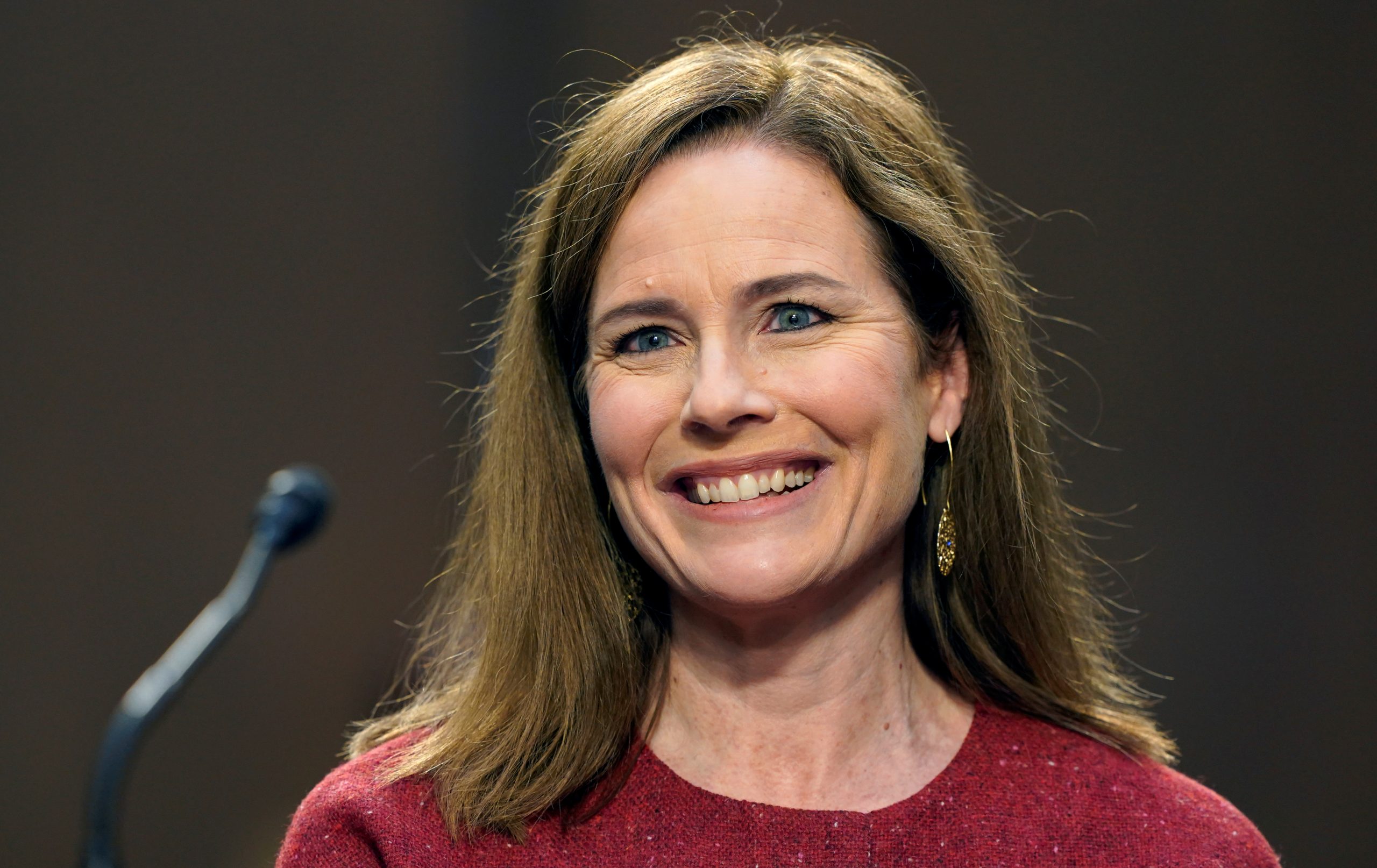President Donald Trump’s Supreme Court nominee Amy Coney Barrett on Tuesday began the first of two days of direct questioning from U.S. senators, telling senators that her religious views would not affect her decisions on the bench.
The Senate Judiciary Committee hearing presents Barrett with a chance to respond to Democratic lawmakers who have been unified in opposing her primarily on what they say would be her role in undermining the Obamacare healthcare law and its protection for patients with pre-existing conditions.
Republican Senator Lindsey Graham, the committee’s chairman, opened the questioning by asking her about her conservative legal philosophy known as originalism, in which laws and the Constitution are interpreted based on the meaning they had at the time they were enacted.
“That meaning doesn’t change over time and it’s not for me to update it or infuse my own policy views into it,” Barrett said.
Graham asked Barrett, a devout Catholic and a favorite of religious conservatives, whether she could set aside her religious beliefs in making decisions as a justice.
“I can,” Barrett said.
Barrett called the late conservative Justice Antonin Scalia, for whom she served as a clerk two decades ago, as her mentor, but said she would not always rule the same way as him.
“You would not be getting Justice Scalia, you would be getting Justice Barrett. That is so because originalists don’t always agree,” she said.
Graham will be followed by Senator Dianne Feinstein, the panel’s top Democrat. Barrett sat alone at a table facing the senators.
Barrett was nominated to a lifetime post on the court on Sept. 26 by Trump to replace the late liberal Justice Ruth Bader Ginsburg.
Barrett could be on the Supreme Court in time for the Nov. 10 arguments in a case in which Trump and Republican-led states are seeking to invalidate the 2010 Affordable Care Act, Democratic former President Barack Obama’s signature domestic policy achievement that has enabled millions of Americans to obtain medical coverage.
Barrett has criticized a 2012 Supreme Court ruling authored by conservative Chief Justice John Roberts that upheld the law, popularly known as Obamacare.
Republicans have a 53-47 Senate majority, leaving Democrats with little to no chance of blocking Barrett’s confirmation.
If confirmed, Barrett, 48, would tilt the Supreme Court further to the right and give conservative justices a 6-3 majority, making even the unexpected victories on which liberals have prevailed in recent years, including abortion and gay rights, rarer still. She is Trump’s third Supreme Court appointment.
Trump’s nomination of Barrett came late in an election cycle when Republican control of both the White House and Senate is at stake. The confirmation hearing format has changed because of the COVID-19 pandemic, with the public excluded and some senators participating remotely.
Democrats, including vice presidential candidate Kamala Harris, on the first day of the hearing zeroed in on the fate of Obamacare, as Republicans push to confirm Barrett before the Nov. 3 presidential election between Trump and Democrat Joe Biden.
The hearing is a key step before a full Senate vote by the end of October on Barrett’s confirmation to a lifetime job on the court.
Republicans have sought to portray Democrats as attacking Barrett, a devout Roman Catholic, on religious grounds, although the Democrats have so far steered clear of doing so.
(Reporting by Andrew Chung in New York and Lawrence Hurley and Patricia Zengerle in Washington; Editing by Scott Malone and Peter Cooney)

























 Continue with Google
Continue with Google